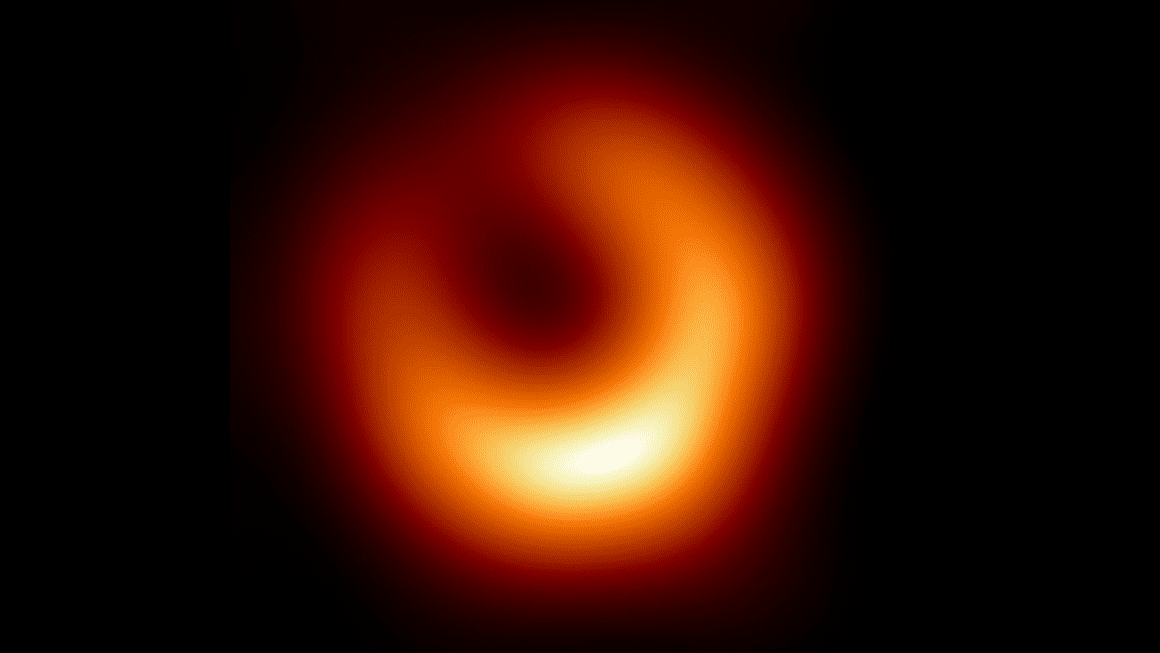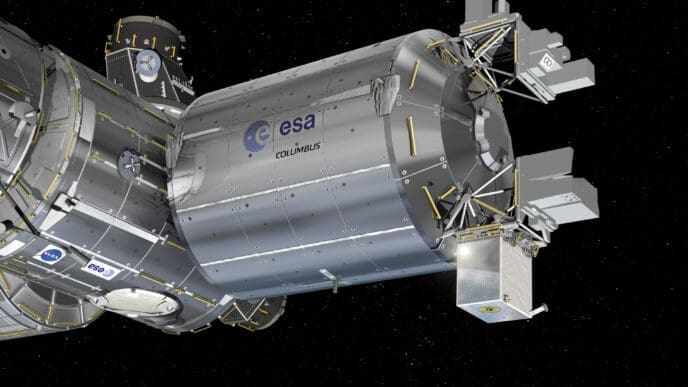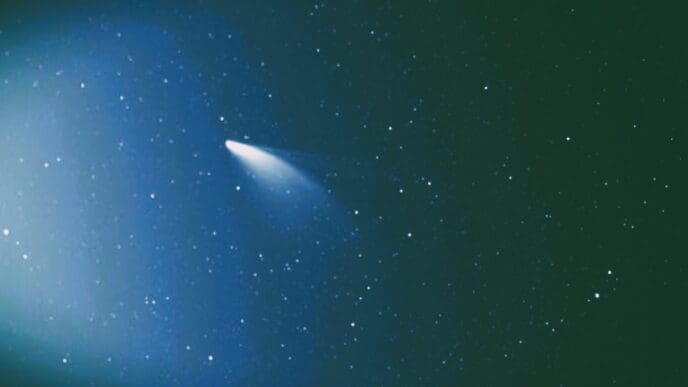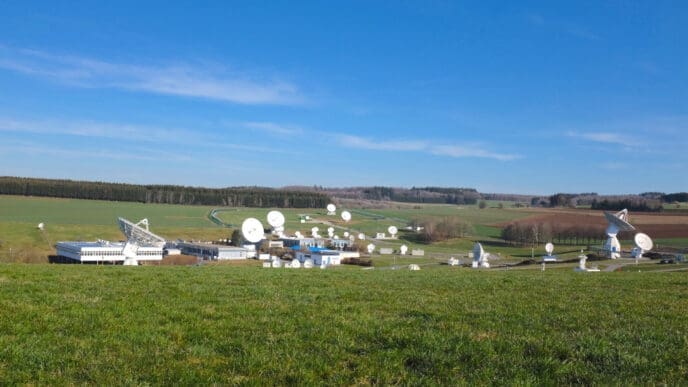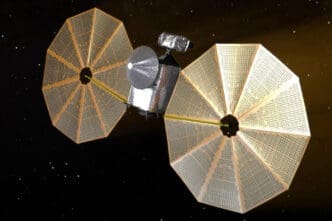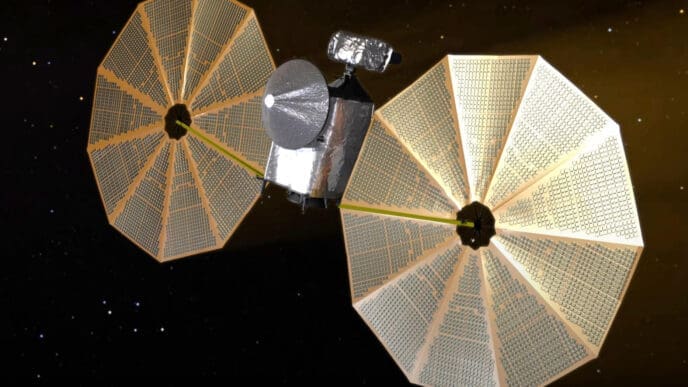Researchers from Seoul National University in South Korea are on the verge of transforming our ability to observe supermassive black holes with an innovative satellite constellation named Capella.
Led by astronomy professor Sascha Trippe, the development of the Capella constellation aims to overcome the limitations of current black hole imaging technologies. The Event Horizon Telescope (EHT), a global network of radio telescopes, offered humanity its first glimpse of a black hole in 2019. However, Trippe pointed out the constraints of EHT, where each antenna pair records just a singular point of the target at any time. As a result, images require substantial processing and often lack structural detail, rendering some black hole features invisible.
The Capella project proposes a network of four satellites orbiting Earth at altitudes between 280 and 370 miles (450 to 600 kilometers). This setup would allow the satellite-based network to surpass the Earth-bound EHT in size, thus enhancing imaging resolution and eliminating blind spots. With higher frequency radio emissions, which are obscured by Earth’s water vapor, the satellites can capture clearer images of black holes without terrestrial atmospheric interference.
According to Trippe, better resolution is critical to understanding phenomena such as the formation of jets of hot gas, which can’t be visualized with current methods. The Capella system could reveal detailed processes occurring near a black hole’s event horizon, shedding light on the mysterious mechanisms at play.
Trippe envisions that such a project could proceed within a budget of $500 million, a know-how spurred on by advancements in technology that have made smaller, more cost-effective radio observatories feasible. South Korea’s Korea Aerospace Administration is contemplating funding the initiative, with an expected decision next year. If supported, the constellation could be operational in the early 2030s, potentially providing insights into supermassive black holes and their surrounding areas at an unprecedented pace and precision.
The Capella satellite constellation represents a significant leap forward in black hole research. By addressing the shortcomings of current imaging techniques, it promises to open new avenues for understanding these enigmatic cosmic entities. With potential backing from the Korea Aerospace Administration, this project marks an exciting step toward revealing the hidden workings of the universe.
Source: Space


